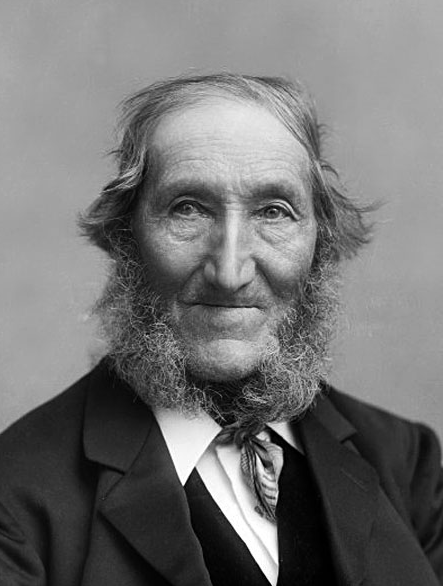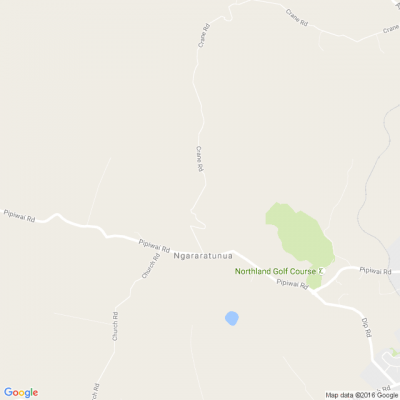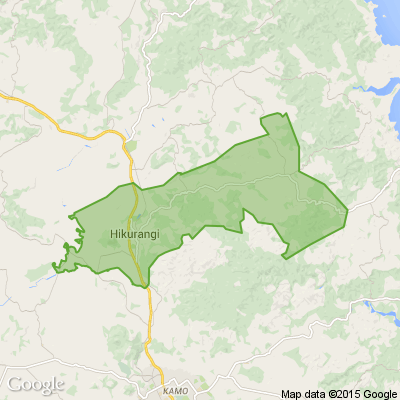Opinions, opinions, drowning in a sea of opinions.
“The test of character posed by the gentleness of God's approach to us is especially dangerous for those formed by the ideas that dominate our modern world. We live in a culture that has, for centuries now, cultivated the idea that the skeptical person is always smarter than one who believes. You can be almost as stupid as a cabbage, as long as you doubt. The fashion of the age has identified mental sharpness with a pose, not with genuine intellectual method and character. Only a very hardy individualist or social rebel -- or one desperate for another life -- therefore stands any chance of discovering the substantiality of the spiritual life today. Today it is the skeptics who are the social conformists, though because of powerful intellectual propaganda they continue to enjoy thinking of themselves as wildly individualistic and unbearably bright.”
― Dallas Willard
The world is full of opinions, so I would like to take some time to speak about that apparently innocuous little word. What we tend to believe is that our opinion has at least a semblance of truth, and others opinions are - well either baseless at worst, or further from truth at best.
But what is worse, is the idea that there can only be- opinions. This is reflective of an all pervading attitude of doubt. An atmosphere of doubt at a grassroots level clouds the world of thought. No matter how well thought out a position may be, one can simply pour an attitude of skepticism and doubt on the whole process and come away thinking that therefore the subject has been dealt with. But while it is easy to doubt, it is far harder to affirm. This is what Kant had to say about it:
“Skepticism is thus a resting-place for human reason, where it can reflect upon its dogmatic wanderings and make survey of the region in which it finds itself, so that for the future it may be able to choose its path with more certainty. But it is no dwelling-place for permanent settlement. Such can be obtained only through perfect certainty in our knowledge, alike of the objects themselves and of the limits within which all our knowledge of objects is enclosed.”
Kant knew human nature well enough to know that we are not happy in doubt, that it is dangerous to tarry, to sleep in such unfriendly country. When we doubt the status quo, we must also allow the imagination to seek a better country. Einstein said: “Imagination is more important than knowledge. For knowledge is limited to all we now know and understand, while imagination embraces the entire world, and all there ever will be to know and understand.”
― Albert Einstein
Let’s hear what the late J. F. Kennedy thought about opinions:
“The great enemy of the truth is very often not the lie- deliberate, contrived and dishonest- but the myth- persistent, persuasive and unrealistic. Too often we hold to the cliches of our forebears. We subject all facts to a prefabricated set of interpretations. We enjoy the comfort of opinions without the discomfort of thought”
What seems to be a growing consensus is that comprehending truth is as as far from the realms of possibility as a square circle is from reality. The common denominator is that truth in anything is impossible except in a few limited fields . In any subject we care to think of- it seems to be a foregone conclusion that we can only ever attain to a private perception of reality, there is no such thing as absolute truth, and even if such an entity existed, it would be inaccessible to us. Between us and reality, there is always our perception getting in the road. But is that an assumption that needs to be queried, a temptation to slothful thinking that needs to be doubted?
The late philosopher Professor Dallas Willard on the need for targeted skepticism: ““We need to be skeptical about secularism, see one of the hardest things to do, is to be skeptical about the things that are in most need of skepticism- you have to look at the consequences of rejecting religious truth from the domain of truth”
At this point the reader will need to scroll down to the image.
Marcus Aurelius was a Roman Emperor from 161 to 180 AD and has also been distinguished as one of the most important Stoic philosophers. It is he that is credited with the caption used in this image from The Idealist on Facebook. But it’s not just the saying that captured my imagination- it’s the very clever use of the image involved as well. Together they epitomize all that is clever and good about a slogan- punchy, humorous and quickly grasped. It exemplifies the cliche: “a picture is worth a thousand words”. What staggers me somewhat is that Aurelius seems to have captured the spirit of our age, no mean feat when considering his antiquity. But of course, what goes around, comes around. But while I admire its succinctness, we ought not be taken in by it. To be taken in by it is to accept a “dumbing down”.
This really does characterize in a nutshell, one of the chief dilemmas of our time, the emasculation of truth. Everything is reduced to "opinion" and when that happens, truth is devalued and lumped in with half-truths and convincing fallacies, and straight out lies dressed in exotic clothes. The term Postmodernism characterizes the spirit of our times. Men and women of foresight predicted the direction the world would take, from it's crucible in the tertiary institutions. Over a hundred years ago G. K. Chesterton declared: "The postmodern has his feet firmly planted in mid-air".
Good old Marcus has made an absolute, unequivocal statement. Not once but twice, (given that the translation is accurate) he uses the word “everything” ditto.. There is not much that can be an exception to that is there? So everything is an opinion is it? Is that a fact? But therefore what he says can’t be a fact can it? If all is opinion, then that must include Marcus’s own statement mustn’t it? If we subject his saying to his own rule- (that everything is opinion and not fact) then his own saying defeats itself. His own saying (as defined by his own saying)- isn’t a fact. So who then is interested in opinions not based on facts? This is after all, merely his perspective, and not the truth- he has laid a trap for all truth, and has fallen neatly into his own net, hoist by his own petard.
The reality is that if true knowledge was impossible, which is what his saying concludes, we wouldn't even be capable of knowing what an opinion was! We all know what an opinion is, compared to true knowledge or factuality, truth- but we only know these from comparison. If we were incapable of truth, then neither would we know what "opinion" would be. The word “opinion” would have no meaning for us. As C.S. Lewis has said, a man can only call a line crooked, when he has some idea of a straight line. Well, the same holds for opinion, we can only call something an opinion, (like the crooked line) when we know what truth is, (the straight line), and if everything was literally opinion, as Aurelius opines, then we could not distinguish an opinion from truth. We could not know any truth.
It is interesting to note that the difficulty for the two tally clerks who cannot agree on the number of boards does not stem from any lack of knowing the truth about counting boards, but rather the impossibility of what are depicted as boards, in other words the irrational drawing. And for the same reason it is irrational to concede that truth cannot be known. Because if that were true, then we could not know it was true. Again we find that those views which prove an enemy of the absolute, smuggle in their own absolutes in order to make their erroneous point.
In this forum we have all heard that our culture has undergone some radical changes in a few short years, and that there has also been observed a marked deterioration in social statistics that is of genuine concern to many.
“Culture is the effort to provide a coherent set of answers to the existential questions that confront all human beings in the passages of their lives” Daniel Bell
“ a genuine cultural revolution then, is one that makes a decisive break with the shared meanings of the past- particularly those that relate to the deepest questions of the purpose and the nature of human life.” Daniel Yankelovich
Now we can see from the fact that we know what opinions are, because we know what truth is, and objective morality is like that, we can know when something is merely human convention, or just a preference, because we are holding them up to the light of an objective standard.

What workplace change would you like to see most?
This coming Monday is Labour Day in New Zealand. This public holiday marks when the eight-hour workday and 48-hour workweek became law in 1899. The idea started with Samuel Parnell, a carpenter in Wellington, who in 1840 refused to work more than eight hours a day. Since skilled workers were in short supply, his employer had to agree.
As more skilled workers arrived, employers tried to change working conditions, but Parnell and others kept pushing for better rights. In 1890, Parnell led a Labour Day parade of 1,500 people to promote the eight-hour day. He passed away shortly after, and nine years later, Labour Day became an official public holiday.
Do you feel that we have reached the ideal in working environments yet? What rights are you passionate about relating to employment? Share your thoughts!

Your Daily Brain Workout: Ready to Riddle?
What is 3/7 chicken, 2/3 cat, and 1/2 goat?
Do you think you know the answer to our daily riddle? Don't spoil it for your neighbours! Simply 'Like' this post and we'll post the answer in the comments below at 2pm.
Want to stop seeing riddles in your newsfeed?
Head here and hover on the Following button on the top right of the page (and it will show Unfollow) and then click it. If it is giving you the option to Follow, then you've successfully unfollowed the Riddles page.

Six tips for improving security around your home
1) Improve outdoor lighting
Ensure that streets, driveways, and front yards are well-lit. Motion-sensor lights around homes deter trespassers by reducing hiding spots and illuminating their movements.
2) Trim your trees
Overgrown shrubs and trees provide cover for intruders. Keeping them well-trimmed around windows and doors improves visibility and reduces potential hiding spots.
3) Secure Entry Points
Ensure doors, windows, and gates are always closed when you are away from the house. Upgrade to more secure locks, deadbolts, or even smart locks for added protection.
4) Add a security camera
Place security cameras in the main entry points to your home. Doorbell cameras are also relatively cheap and a great way to keep track of who is visiting your home when you aren't there.
5) Start a Neighborhood Watch Program
You could reach out to members on Neighbourly to form a group of neighbors who can regularly keep an eye out for suspicious activity and report it. You could also check with Neighbourhood Support to see what is existing in your area.
6) Introduce yourself to your neighbours
The closer you are to your neighbors, the more likely they’ll notice when something unusual or suspicious is happening around your property
Feel free to share anything that you do around your area to deter crime.








 Loading…
Loading…














